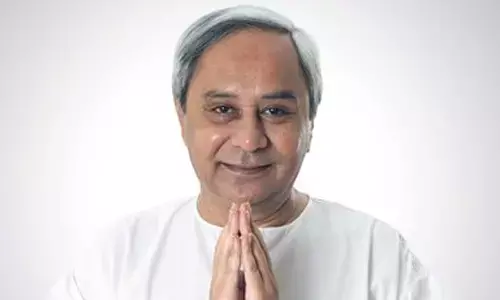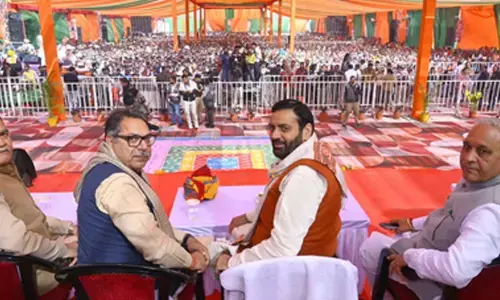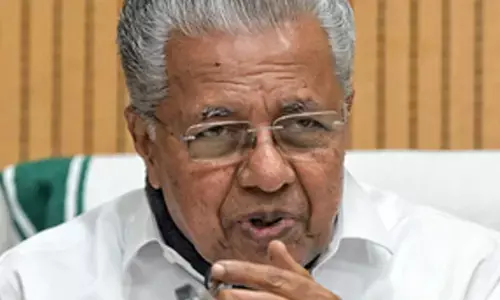The future of Indian e-commerce lies in innovation

I truly believe that e-commerce is the future of retail and it will play a big role in India specifically. There are several scenarios that could describe how India will be 20 years from now and what role e-commerce will play in the India of tomorrow.
At StalkBuyLove, I have had the experience of building an e-commerce company that is eight times more capital-efficient than any other Indian e-commerce brands. I believe that survival of the fittest ultimately boils down to survival of the best adapted. The views expressed here are driven from my personal experiences of building StalkBuyLove.
I truly believe that e-commerce is the future of retail and it will play a big role in India specifically. There are several scenarios that could describe how India will be 20 years from now and what role e-commerce will play in the India of tomorrow.
Let’s draw a picture of a likely good case. Assuming that India sticks to its path, focusses on Prime Minister Narendra Modi’s ‘4 Ds’ and there are no shattering external events that will impact this course of direction; e-commerce will play a major role in Indian retail, probably more than anywhere else in the world. There are plenty of reports that underline common sense with numbers and try to capture the magnitude of this development. However, below are my top four no-brainer reasons why e-commerce in India will be huge:
A) Indians are getting richer
With more jobs being created, the quality of lifestyle of Indians is going up. According to a report released last year by Economic Intelligence Unit, India is leading in the race to riches among 32 countries. Many ‘new wealth builders’ are being added to the list of rich Indians every year.
B) By our very nature, we Indians are consumers, not producers.
This is not a scientific evidence by all means, and it does not have to be. Ask yourself: are Indians producers or consumers? When coming to a conclusion, take into account India’s labour productivity compared to China and diabetes/chronic heart disease penetration in India (with rising income levels) versus other countries.
Indian consumption and retail will be so huge and it will create wealth for decades to come, because Indians love to consume, not save.
C) Slow growth of offline retail infrastructure
It’s evident that offline retail infrastructure will not grow as fast as India’s huge thirst for consumption. This will give the online distribution channel a special kind of importance. I am of the firm opinion that e-commerce will be going way beyond the ’12-percent-of-total-retail’ mark in India very quickly.
D) Smartphone penetration and data consumption rising quickly at unprecedented scale
As per a recent report by Morgan Stanley, India is adding three new Internet users every second. Internet penetration connects players, enables transactions and thus enables retailing in a decentralised manner. Decentralised structures often times form the basis for an India-typical leap frogging (telecommunication, computers and now possibly solar power and online retail).
To develop India into a hub for innovation in e-commerce, let’s start with the entrepreneur
How can we turn India into an innovation leader for e-commerce? What are the ways we can innovate e-commerce business models? How can we create new businesses, possibly localise or pivot existing business models and adapt them to India, so that they can sustainably and profitably deliver a value-add for stakeholders and society at large for decades to come?
There are several levers that we could speak about, like policy, capital, talent and others. However, I want to focus and discuss the fundamental precondition to sustainable breakthrough innovation at an Indian scale – the entrepreneur.
In order to make India a fertile soil for innovation and sustainable businesses at scale, the power balance between capital providers and entrepreneurs needs to shift in a special kind of way.
Improvements do not have to be made on the VC side but on the entrepreneurial side. The VCs will do what they do best: seek validation for the business case, analyse financial statements and understand how to scale the company in the next eight to 16 quarters, before the fund exits to the next party or the company raises funds at a higher valuation.
To balance this shorter investment horizon, we need entrepreneurs that look at a time horizon of 10 years or more, with a strong passion for the business and product and not for the size of the exit. I am not saying that exit is not important, but as an entrepreneur it should be secondary.
This ‘honourable’ entrepreneur has characteristics of a soldier because she, metaphorically speaking, dies with her ideas and pushes these ideas to their maximum, all the while thinking of how to optimise and create the best possible experience for customers. Honourable entrepreneurs want to solve problems that matter.
Too much sugar makes you sick – too much VC sugar resulting in the emergence of a crippled entrepreneurial breed
Investors don’t want to carry ‘business-model risk’, just ‘scaling risk’. This was a statement that came up while having an informal conversation with one of my friends who is deeply engaged in the Indian VC space at seed and Series- A ticket sizes.
I thought about whether VC money has changed something in entrepreneurs in India today; I came to the conclusion that it did. The truth is that, while India has a lot of entrepreneurial talent, the recent influx of venture capital has resulted in the emergence of a crippled kind of entrepreneurial breed – the get-rich-fast kind of ‘exitpreneurial’ breed.
The exitpreneur puts his personal gain at the centre of his entrepreneurial journey, rather than building an amazing product or service. The exitpreneur would be fine with selling a fundamentally-ill business if it is valued at 10x Gross Merchandise Value or higher. Exitpreneurs destroy value, while transferring wealth from other pockets into theirs on the way down.
Don’t get me wrong; I have nothing against exits that unlock value for the transacting parties.
If entrepreneurs want to deliver amazing products at scale, they need VCs (or five decades and three generations of God-like luck). I am sure there are pathological cases but when thinking about how to systematically create value for India through innovation, we need to smoke out the exitpreneurial mindset from our fertile startup soil. This will form the basis for India as a sustainable innovation hub for decades to come.
Let’s look at the possible solutions that I think would lead the way for innovation in Indian e-commerce
a) For innovation to happen, we need the honourable entrepreneurs with soldier-like principles to dictate to capital’ where to be injected (not the other way around) by creating amazing products within amazing business models
b) We don’t need capital to dictate exitpreneurs with en-vogue business models to start up in the hope of getting funding. True entrepreneurs understand that getting funding should not even be considered a milestone; it is where the heavy stuff and sweat starts, while you are working on your dream/ ambition day-in and day-out.
c) We need a true meritocracy of ideas and we need capital givers with a sharp mind and no fear of the unknown. Capital providers must stop seeking validation by seeking a proof-case in the form of a three-year-old business model from the US. They must apply their mind more sharply and think India, to identify businesses that will change the status quo 10 years from today.
d) Entrepreneurs must change their mindset, too. Let’s stop judging the success of our businesses solely based on the size/valuation of the last financing round and start judging it by the quality of the product, founding team, margin profile, uniqueness, coolness and other factors too – factors that probably are equally important.
Finally, ‘scale’ and VCs are amazing because they enable entrepreneurs to build a critical mass much faster through mentoring, money and other forms of capital. However, let’s create huge companies with amazing products or services at scale and stop selling black boxes to the next bigger fund. Let’s focus on creating companies that create value and not merely transfer value. For this, you need the right idea, the right entrepreneur and a VC that has a system in place to consistently separate the right ones from the bad ones – a system that does not heavily rely on foreign-validated cases but takes ‘innovation – in India, for India’ seriously.
Source: TechGig.com















